I have a table which has float score, and I want to rank them from largest to smallest, if the same score, same ranking. I am using MySQL/MySQL Workbench, and any good ideas are appreciated.
Here is a sample input and output,
+----+-------+
| Id | Score |
+----+-------+
| 1 | 3.50 |
| 2 | 3.65 |
| 3 | 4.00 |
| 4 | 3.85 |
| 5 | 4.00 |
| 6 | 3.65 |
+----+-------+
+-------+------+
| Score | Rank |
+-------+------+
| 4.00 | 1 |
| 4.00 | 1 |
| 3.85 | 2 |
| 3.65 | 3 |
| 3.65 | 3 |
| 3.50 | 4 |
+-------+------+
Tried the following query, but not working since it does not handle duplicate,
SELECT id, score,
@curRank := @curRank + 1 AS rank
FROM TestRank tr, (SELECT @curRank := 0) r
ORDER BY score desc;
In this above query, user 3 and user 5 have the same score value 4, but ranked differently.
I also tried the following query to just rank score itself, and it returns very weird results,
set @curRank := 0;
SELECT distinct score, @curRank := @curRank+1 as rank
FROM TestRank tr
ORDER BY score desc;
thanks in advance, Lin
